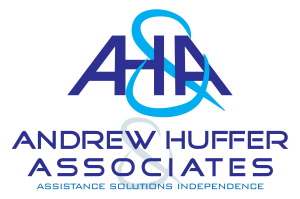I’m chairing and facilitating sessions at the National Health and Safety Representatives Forum (HSR) for the Oil and Gas Industry. I’ve just come back from a planning meeting which has got me excited!
Now I’m sure you’ve been to conferences in big venues that become an endless grind of information drilled into you by power-point obsessed drones. Painful isn’t it?
Well, we’re working hard with this event to avoid that. Sure there’ll be some presentations, but we’re focusing on making sure participants get something valuable from the day. So here’s a short checklist to help you in planning an event. (It’ll keep the venue cleaners happy too – they won’t have to coax out participants who were hiding under their seats, murmuring “make it stop…make it stop..” long after the event has finished!)
- Think of your audience. What do they do for a job? Where are they mostly working during the day? Inside or outside? Are they in the one location or moving around? This has an impact on their attention span. If they normally work outside you’ll need shorter sessions to help them refresh and stay alert. This is the case with the HSR forum.
- Keep your timeframe in mind. What’s your ratio of ‘session-time’ to ‘break-time’? This is a toughie. People come to events for different reasons. Some come for the content, others for the networking. My view is that you need decent breaks to help participants to refresh their minds, process the content/presentations and discuss these with their peers – that’s when decent breaks work really well. By decent, I’m talking 30 minute morning & afternoon teas and 60-90 minutes for lunch.
- Look for opportunities for interaction. Even if you’re ‘stuck’ with presentations, you can encourage presenters to take this path. Get them to pose a question to participants. If they’re sitting in rows (theatre-style) they can do this in pairs. If they’re at tables this opens the discussion even further. I did this at the Permit Approvals WA conference (about community engagement in the energay and minerals sector) and it caused quite a stir! People were not used to this happening – but they loved it – and it made the session a winner (not bad at 3.35pm!) – the hard part was getting them to stop talking 😉
- More opportunities for interaction. Are there sessions that can become mini-workshops? This is a great way to get people to share information and experiences – it basically ‘doubles’ their learning. Wrap up this kind of session with a short ‘snap-shot’ report from a few of the discussion groups. Remember to ask them a clear question about their discussion and get their feedback. If you have time (ha!) this could be the basis for a broader audience discussion.
- Challenge the audience. It’s easy for people to sit back and zone out at conferences and events. My challenge to participants is to ‘grab just one thing from each session that you can take back to work and apply.’ This helps in overcoming resistance to the ideas being presented and gets them thinking about the ‘one thing’ and what it might be.
- Go out on a limb. Whilst we’re in the midst of challenging the audience – ask them to turn off their phones. Others disagree with ‘rules’ like this – not me. If people have shelled out hundreds to thousands of dollars to attend a conference they shouldn’t be distracted by an obsessive phone, email, twitter or Facebook user. And often the offenders are senior managers – people who should know better and set a positive example. My (extreme) view is that if they can’t be out of contact (at least during sessions) then they shouldn’t be there.
- WIIFM. Well even I can’t be a fascist bully-boy all the time! An alternative to the “switch off your phones or I turn on ‘achey-breaky heart’ ” rule is to invite people to drop everything that distracts them and immerse themselves in the conference. I give them a WIIFM (what’s in it for me). And that is to ‘let others deal with the dramas back at work – everyone wins with that! The people back at work build confidence and you can relax.’
- Recap. If you’re the MC or facilitator, see if there’s a chance to do a short recap on a session. This works best just before a break. Ask participants what they can apply from the session & get them to note it down. Ask them if there are any ‘one-percenters‘ from the session that would help them back at work. This helps them to process what they’ve heard and embed their learnings
So there’s just a short sample of the things you could do to make your event or conference a winner. And feel free to fire any questions you have at me about your next conference or event in the ‘Speak your mind’ section below.

Reader Interactions